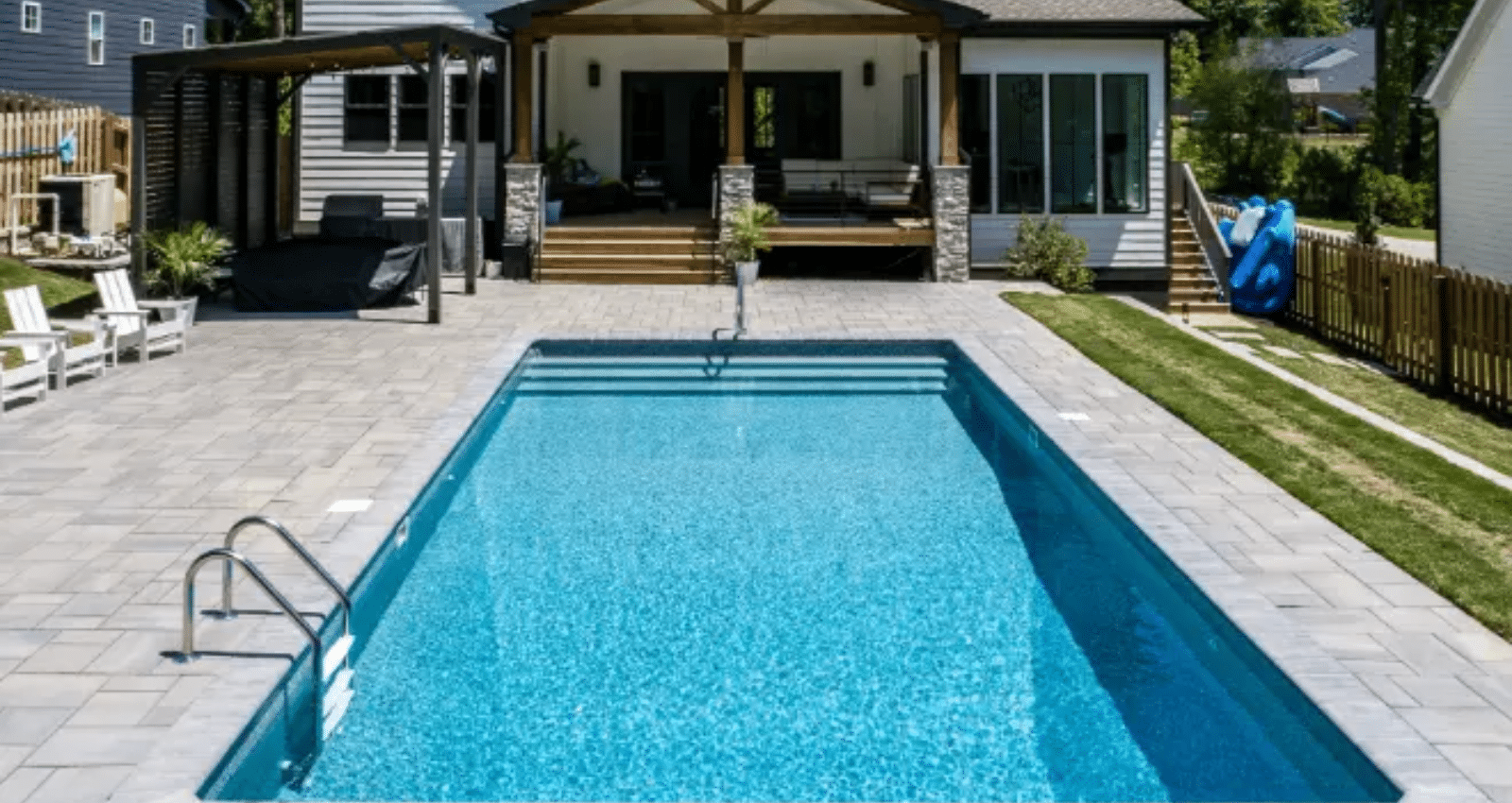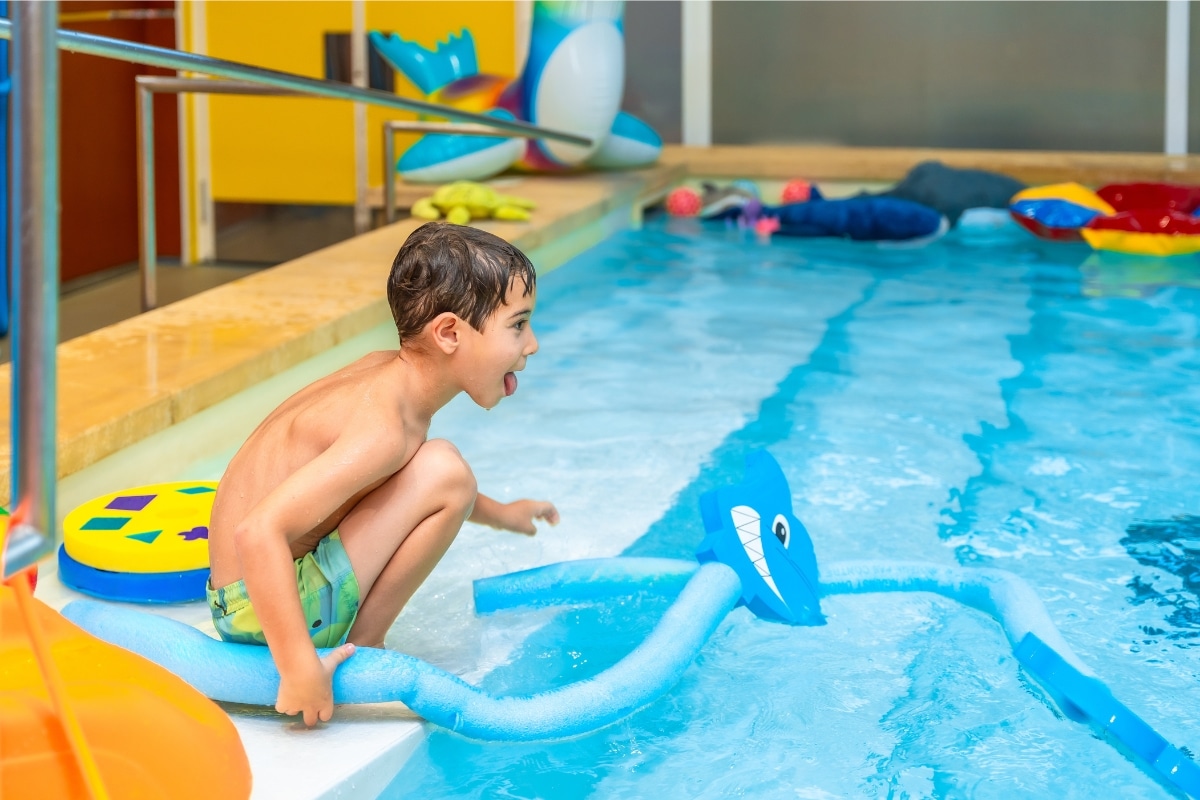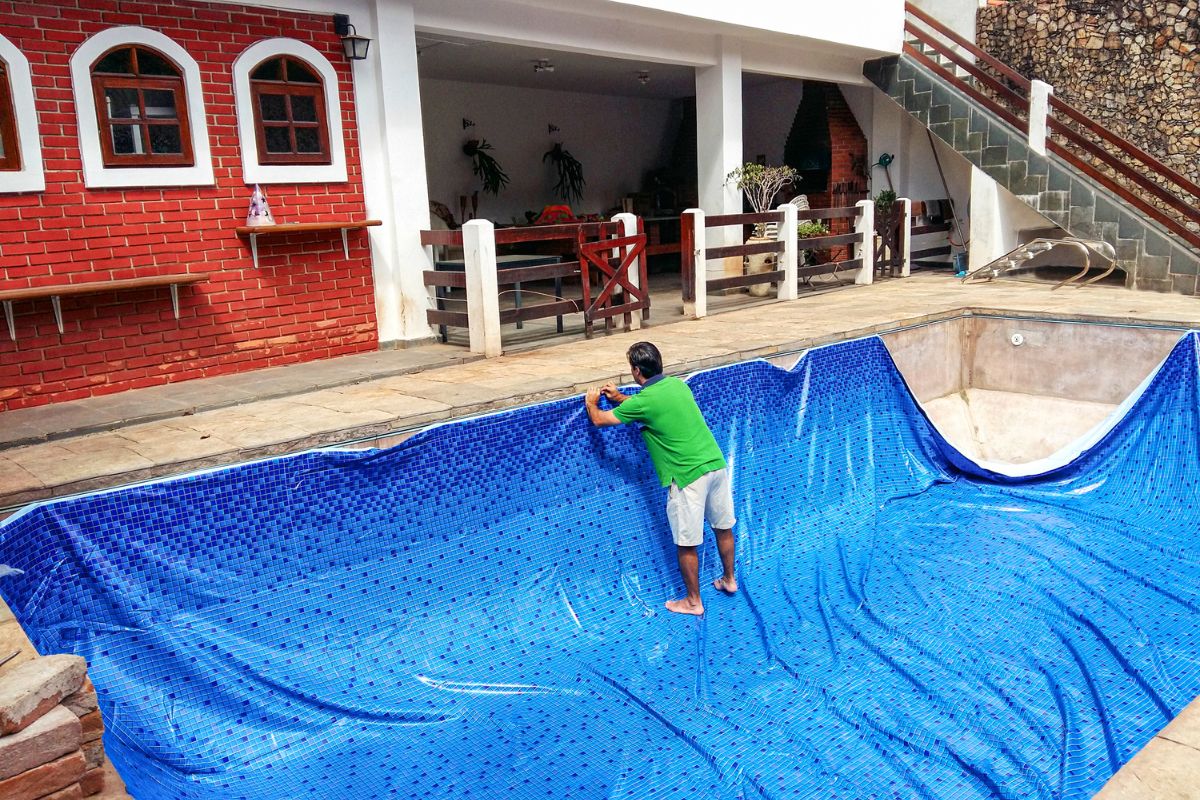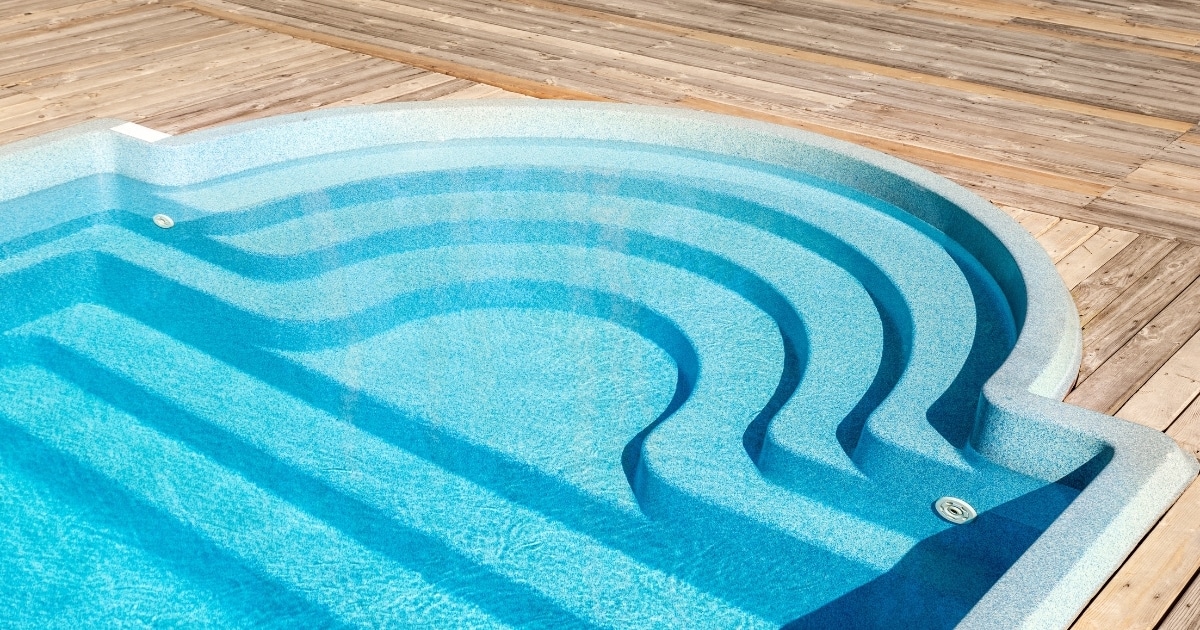Call Us TODAY: (417) 771-7552
Is a Vinyl Pool Right for Your Home? Pros and Cons You Should Know

Are you considering adding a pool to your home but unsure if a vinyl pool is the right choice?
Whether you’re envisioning serene summer days by the water or planning family gatherings around a refreshing oasis, understanding the benefits and considerations of vinyl pools is crucial. A vinyl pool installation can transform your backyard into a personalized retreat, offering a range of advantages that appeal to many homeowners.
Vinyl pools are celebrated for their affordability, design versatility, and gentle touch—a combination that sets them apart in the world of pool installations. In 2024, these pools continue to rise in popularity due to their cost-effectiveness and the ability to tailor designs to fit diverse preferences.
From classic rectangular shapes to freeform styles that blend seamlessly with landscaping, vinyl pools offer flexibility without compromising on aesthetics or functionality. Whether you’re aiming for a sleek modern look or a naturalistic backyard escape, the options are vast and accommodating.
Let’s explore why vinyl pools might be the perfect fit for your home’s outdoor paradise.
Pros of Vinyl Pools
Cost-effectiveness compared to other pool types
- Vinyl pools are generally more affordable to install compared to concrete or fiberglass pools.
- Lower initial costs make them accessible to a broader range of homeowners.
- Reduced installation expenses can free up the budget for additional pool features or landscaping.
Variety of design options and customization
- Vinyl pools offer extensive customization in terms of shape, size, and design aesthetics.
- Homeowners can choose from a wide range of patterns, colors, and textures for the pool liner.
- Flexibility in design allows integration with various backyard styles, from modern to traditional.
Smooth surface that is gentle on skin and swimsuits
- The vinyl pool liner provides a smooth surface that feels comfortable to swim in.
- Unlike rougher surfaces like concrete, vinyl is less abrasive on skin and swimwear.
- Maintenance of the vinyl liner ensures continued smoothness and comfort over time.
Durability and Maintenance
Longevity with proper care and maintenance
- Vinyl pools can last for many years with proper care and maintenance.
- Regular cleaning and upkeep of the pool liner and equipment extend its lifespan.
- Following the manufacturer’s guidelines for chemical balance and winterization helps prevent premature wear and tear.
Ease of maintenance compared to other pool materials
- Vinyl pool liners are relatively easy to clean and maintain.
- A smooth surface reduces algae buildup and makes cleaning simpler.
- Repairs to vinyl liners are typically straightforward and can be done without extensive professional intervention.
Installation Process
Simplified installation process
- Preparation: Excavate the area and prepare the base for the pool.
- Liner Installation: Place the vinyl liner carefully over the prepared base.
- Filling and Finishing: Fill the pool with water, ensuring the liner settles properly. Final adjustments and testing are conducted.
Flexibility in shape and size
- Customizable Shapes: Vinyl pools offer flexibility in design, accommodating various shapes like rectangular, kidney-shaped, or freeform.
- Size Options: Homeowners can choose from a range of sizes, adapting to different yard spaces and preferences.
The vinyl pool installation process ensures a streamlined experience, from excavation to final adjustments, providing homeowners with customizable options to fit their aesthetic and functional needs seamlessly.
Environmental Impact
Energy efficiency of vinyl pools
- Insulation Properties: Vinyl pools can retain heat well, reducing the need for constant heating and thus lowering energy consumption.
- Efficient Equipment: Modern filtration and circulation systems designed for vinyl pools are often energy-efficient, contributing to overall energy savings.
Sustainability aspects compared to other pool materials
- Resource Conservation: Vinyl pool liners require fewer natural resources during production compared to materials like concrete or fiberglass.
- Recyclability: Some components of vinyl pool systems are recyclable, promoting sustainability at the end of their lifecycle.
Cons of Vinyl Pools
Vulnerability to punctures
- Maintenance Tips: Regularly inspect the pool area for sharp objects or debris that could cause punctures.
- Preventive Measures: Use pool covers when not in use to minimize exposure to potential puncture risks.
- Repair Options: Promptly repair any tears or punctures using vinyl patch kits recommended by professionals.
Potential for fading
- Maintenance Tips: Use UV-resistant pool covers during periods of prolonged sun exposure.
- Proper Chemical Balance: Maintain proper chemical balance in the pool water to minimize fading.
- Vinyl Liner Care: Clean the vinyl liner regularly with recommended products to preserve color and integrity.
Vinyl pool installation offers a cost-effective and customizable option for homeowners seeking to enhance their outdoor spaces with a durable and low-maintenance swimming pool. Despite minor considerations like puncture vulnerability and potential fading, these can be effectively managed with regular upkeep and preventive measures. With their smooth surfaces, variety of designs, and simplified installation processes, vinyl pools remain a popular choice for those looking to enjoy years of enjoyment and relaxation in their own backyard oasis.




